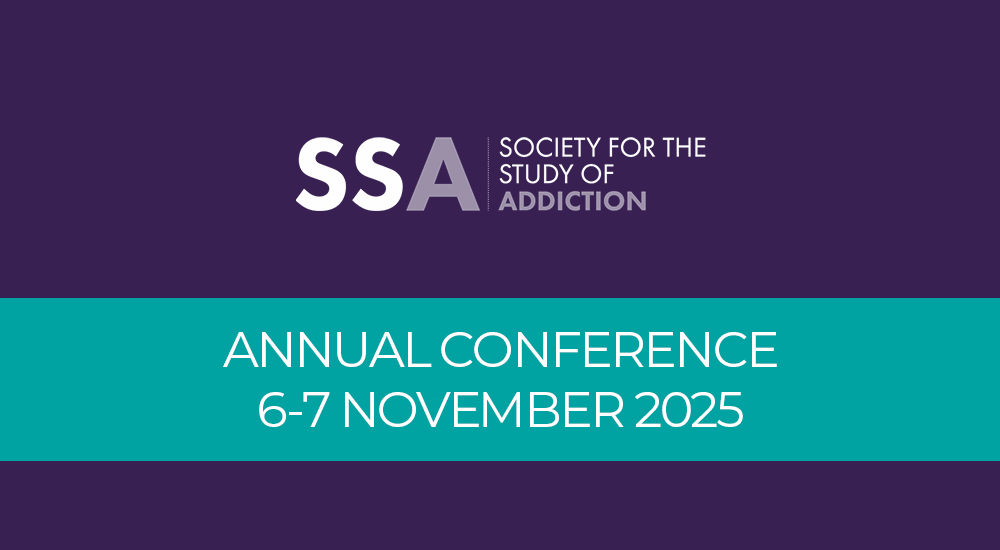SARG to present latest research on alcohol-free and low-alcohol drinks at SSA Annual Conference 2025

Researchers from the Sheffield Addictions Research Group (SARG) are set to present their latest research on alcohol-free and low-alcohol (no/lo) drinks at the Society for the Study of Addiction (SSA) Annual Conference in Newcastle on 6 and 7 November 2025.
The conference brings together experts in the field of addiction, including researchers, policymakers, practitioners, and people with lived experience. SARG's work, which explores key areas like consumer behaviour, marketing and pricing, is vital for understanding how the rapidly growing no/lo market affects public health and informs future policy.
Symposium on alcohol-free and low-alcohol drinks
SARG Research Fellow Dr Abi Stevely and Research Associate Dr Parvati Perman-Howe will present as part of a symposium on Friday 7 November, 'Alcohol-free and low-alcohol drinks: Key questions for public health'. The symposium will share some of the latest findings from our No/Lo Project.
Dr Stevely will explore the crucial question of whether no/lo drinks are actually used as substitutes for standard alcoholic drinks, which is key to determining their public health impact. They will provide a brief summary of the evidence on substitution so far before presenting the latest findings from the No/Lo Project's pricing work.
Dr Perman-Howe will present the results of a qualitative focus group study. This research explores how and why people attempting to reduce their alcohol intake from high-risk levels use no/lo drinks as replacements for standard alcoholic ones. By using a social practice theory approach, the study offers valuable insights into the real-world utility of these drinks and identifies potential areas for future research and public health messaging.
The symposium will also include a presentation from Dr Nathan Critchlow, Research Fellow at the University of Stirling and a member of the No/Lo Project team. He will summarise findings from three studies that investigated the scope, nature and reach of no/lo drinks marketing in Great Britain. This work examined advertising spend trends, the content of adverts, and public awareness of marketing.
The symposium is chaired by No/Lo Project team member Dr Inge Kersbergen of the University of Bath.
Cue reactivity to alcohol-free and low-alcohol drinks
On Thursday 6 November Psychology Lecturer and SARG member Dr Merve Mollaahmetoglu will present her latest research in a talk titled 'Cue reactivity to core branded and non-core branded no and low alcoholic drink cues compared to soft drink cues among hazardous and harmful drinkers.'
Dr Mollaahmetoglu's experimental study investigated the impact of viewing video adverts for different types of no/lo drinks on alcohol craving among risky drinkers. The research found that exposure to both core-branded (those with an alcoholic 'parent' brand) and non-core branded no/lo cues resulted in similar levels of alcohol craving. The findings suggest the effects of exposure to core branded no/lo cues may be more complex than anticipated. This could be due to consumer scepticism about these products being seen as promotional efforts for the main alcoholic brand. Additionally, non-core branded no/lo cues are still associated with alcohol related terms (e.g. alcohol-free lager), which could trigger alcohol craving. Further research is needed to understand the consumer process of being exposed to no/lo marketing.
Find out more
For more on our research into alcohol-free and low-alcohol drinks see the following papers:
- Alcohol-free and low-alcohol drinks in Great Britain: Monitoring report on 2023 data
- Development of the alcohol-free and low-alcohol drinks market in Great Britain from 2011 to 2022: Narrative timelines based on a documentary review of off-trade retail magazines and market intelligence reports
- Temporary and sustained changes in alcoholic and alcohol-free or low-alcohol drinks sales during January? A time series analysis of seasonal patterning in Great Britain
- Current and future trends in the consumption, sale and purchasing of alcohol-free and low-alcohol products in Great Britain, 2014 to 2023
- The use of alcohol-free and low alcohol drinks in attempts to restrict alcohol consumption: findings from a cross-sectional survey
Find out more about the SSA Annual Conference on the SSA website.
-
Professor John Holmes contributes to major new report outlining actions to tackle alcohol harm
SARG Director Professor John Holmes was part of an expert panel that supported the development of 'A Healthier Future: A long-term vision to tackle alcohol harm in the UK', a significant new report published by the Institute of Alcohol Studies (IAS) this week.
-
SARG researchers present on economic modelling and wastewater surveillance at European Public Health Conference
Two researchers from the Sheffield Addictions Research Group (SARG), Dr Charlotte Head and Dr Esther Chanakira, will showcase innovative local-level tools for policy design, including economic modelling and wastewater surveillance, at the European Public Health (EPH) Conference in Helsinki from 11–14 November 2025.
-
New SARG report details alcohol-related health and financial burden in Northern Ireland
The Sheffield Addictions Research Group (SARG) has published new analysis estimating the substantial health and financial toll of alcohol consumption in Northern Ireland, using the most recent available post-pandemic data.
-
New report reveals further growth and key trends in alcohol-free and low-alcohol drinks market
A second Monitoring Report from the Sheffield Addictions Research Group has been published, revealing further growth in the alcohol-free and low-alcohol (no/lo) drinks market and offering new insights into consumer behaviour and pricing.
You might also be interested in…
-
SARG researchers to present at SSA Annual Conference 2024
Researchers from the Sheffield Addictions Research Group will attend the Society for the Study of Addiction (SSA) Annual Conference in Newcastle on 14 and 15 November 2024.
-
SARG Heads to Glasgow for 50th Anniversary KBS Symposium
A team of twenty researchers and PhD students from the Sheffield Addictions Research Group (SARG) will be participating in the landmark 50th Anniversary KBS Symposium for Social and Epidemiological Research on Alcohol next month.
-
Colin Angus presents on alcohol consumption and harm at national conference
SARG Senior Research Fellow Colin Angus spoke at the Managing Addictions in Primary Care conference last week.
